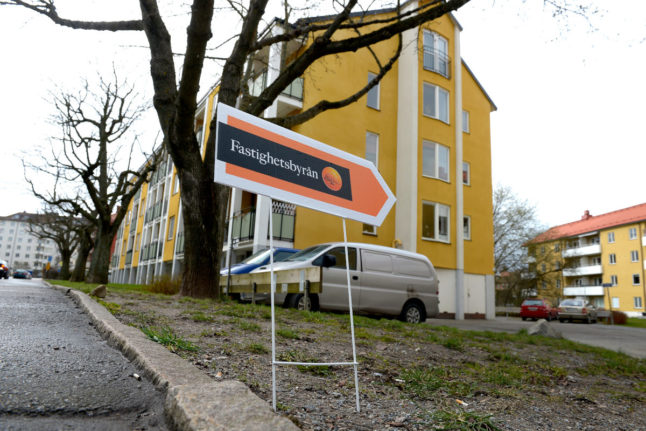A record number of apartments were available on Sweden’s main property listings site last month.
A total of 32,233 apartments were listed for sale on Hemnet in April, 40 percent more than the same month last year and the highest number ever for a single month. A lot of these ads are however for upcoming sales rather than apartments that are already up for public viewings.
“The high supply is an effect of a long period of a sluggish market rather than a risk factor for new price drops. This spring we’ve been seeing both rising prices and more activity. Especially as a result of the fact that we appear to be at peak interest rate and that the first interest cut is drawing near,” writes Hemnet market analyst Erik Holmberg in a comment quoted by Swedish news agency TT.
ESSENTIAL TIPS:
The previous record month was October 2023, when a total of 31,985 ads were posted on Hemnet.
The Local has previously reported that Swedish property prices are also on the rise as the market kicks into action.
A major reason behind the flood of apartments for sale is the expectation that Sweden’s central bank, the Riksbank, will soon slash the country’s main interest rate. While this is expected to bump up prices, it is on the other hand also likely to lead to lower mortgage rates.
EXPLAINED:
The Riksbank will announce its next decision on Wednesday.
This is a crucial announcement as the so-called policy rate is the bank’s main monetary policy tool. It decides which rates Swedish banks can deposit in and borrow money from the Riksbank, which in turn affects the banks’ own interest rates on savings, loans and mortgages.
Sweden’s policy rate is relatively high at the moment, 4.0 percent (the highest since 2008), because of the Riksbank trying to bring down inflation. If bank interest rates are high, it’s expensive to borrow money, which means people spend less and as a result inflation drops.
But now that inflation is on its way down, Riksbank chiefs themselves have said that they think it’s likely that they will cut the policy rate in either May or June, and several economists predict that the cut is going to come sooner rather than later, which would mean this week.



 Please whitelist us to continue reading.
Please whitelist us to continue reading.
Member comments